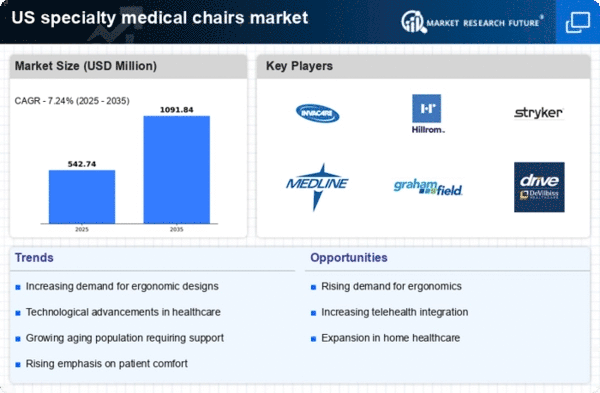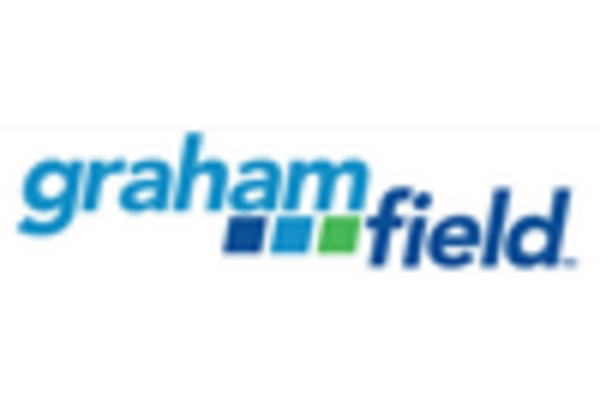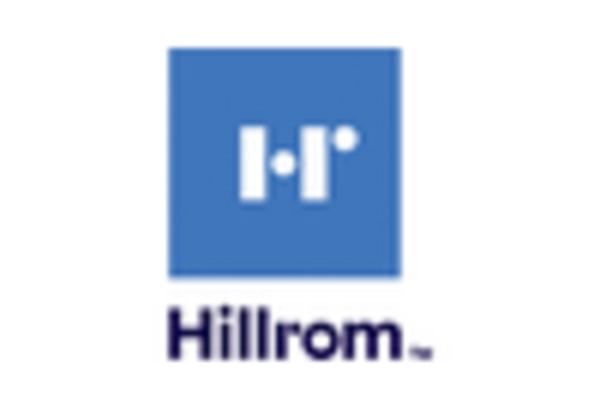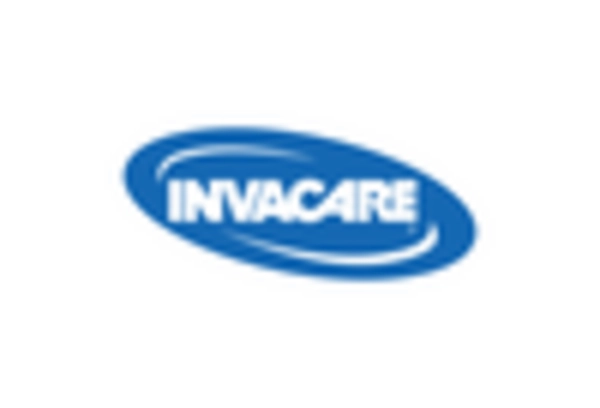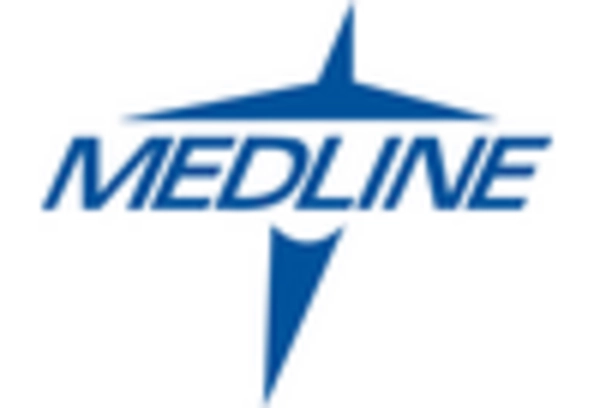Rising Focus on Patient Comfort and Experience
The emphasis on patient comfort and overall experience is a significant driver in the specialty medical-chairs market. Healthcare facilities are increasingly recognizing that patient satisfaction is linked to comfort during medical procedures. As a result, there is a growing trend towards investing in high-quality, comfortable medical chairs that enhance the patient experience. Facilities that prioritize patient comfort may see improved patient outcomes and satisfaction scores, which can influence their reputation and financial performance. This trend is likely to propel the specialty medical-chairs market as healthcare providers seek to differentiate themselves through superior patient care.
Technological Advancements in Medical Equipment
Technological advancements are reshaping the specialty medical-chairs market. Innovations such as integrated monitoring systems, adjustable features, and enhanced mobility options are becoming increasingly prevalent. These advancements not only improve patient comfort but also enhance the efficiency of healthcare providers. For instance, chairs equipped with smart technology can monitor vital signs, allowing for real-time data collection and analysis. The market for such technologically advanced medical chairs is projected to grow at a CAGR of approximately 7% over the next five years, indicating a robust demand for high-tech solutions in healthcare settings.
Aging Population and Increased Healthcare Demand
The aging population in the US is a primary driver for the specialty medical-chairs market. As individuals age, they often require more medical attention, leading to a higher demand for specialized healthcare services. This demographic shift is projected to increase the need for ergonomic and supportive medical chairs in various healthcare settings, including hospitals and outpatient clinics. According to recent data, the population aged 65 and older is expected to reach 80 million by 2040, which could significantly impact the specialty medical-chairs market. Healthcare providers are likely to invest in advanced medical chairs that cater to the specific needs of elderly patients, thereby driving market growth.
Regulatory Standards and Compliance Requirements
Regulatory standards and compliance requirements are critical factors influencing the specialty medical-chairs market. Healthcare facilities must adhere to strict guidelines regarding patient safety and equipment standards. This necessitates the procurement of medical chairs that meet specific regulatory criteria, which can drive demand for compliant products. Manufacturers are increasingly focusing on developing chairs that not only meet but exceed these standards, ensuring safety and reliability. As regulations evolve, the specialty medical-chairs market may experience shifts in demand based on compliance needs, potentially leading to increased investment in innovative and compliant chair designs.
Growth of Outpatient and Ambulatory Care Services
The growth of outpatient and ambulatory care services is a notable driver for the specialty medical-chairs market. As healthcare systems shift towards outpatient care models, the demand for specialized medical chairs designed for these environments is likely to increase. Outpatient facilities require versatile and comfortable chairs that can accommodate various procedures while ensuring patient comfort. This trend is supported by data indicating that outpatient visits have been steadily rising, with a projected increase of 20% by 2030. Consequently, the specialty medical-chairs market is expected to benefit from this shift, as healthcare providers invest in appropriate seating solutions for outpatient settings.


